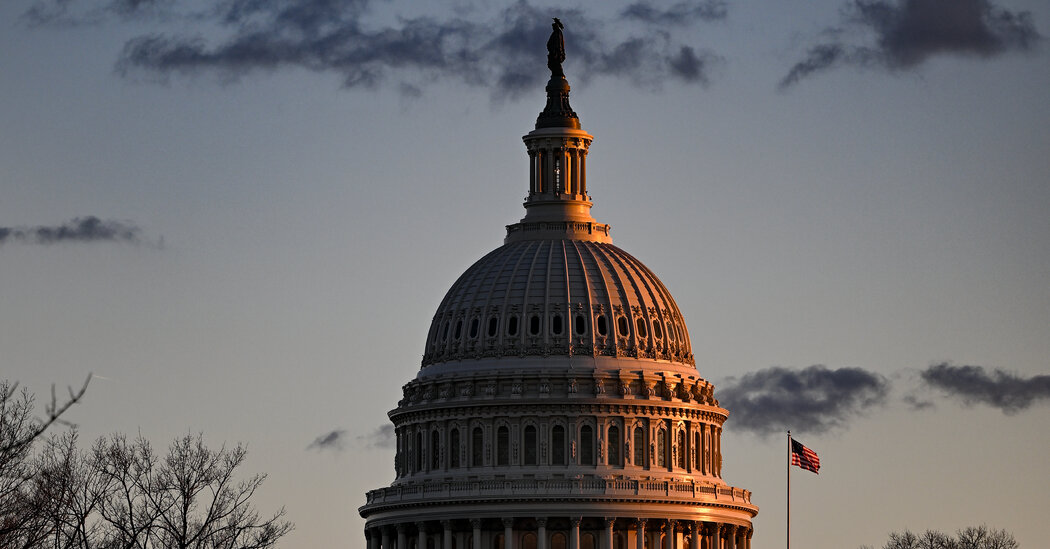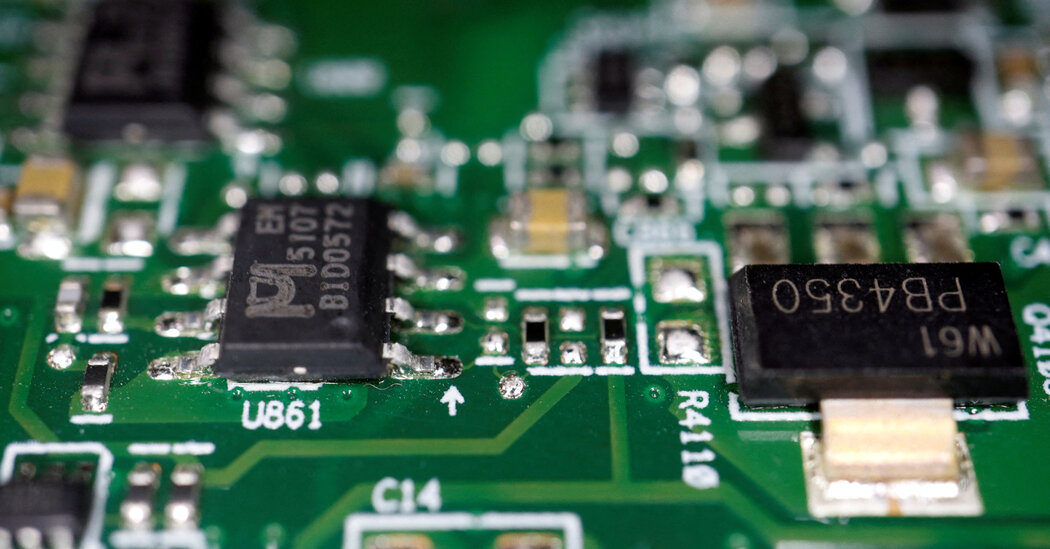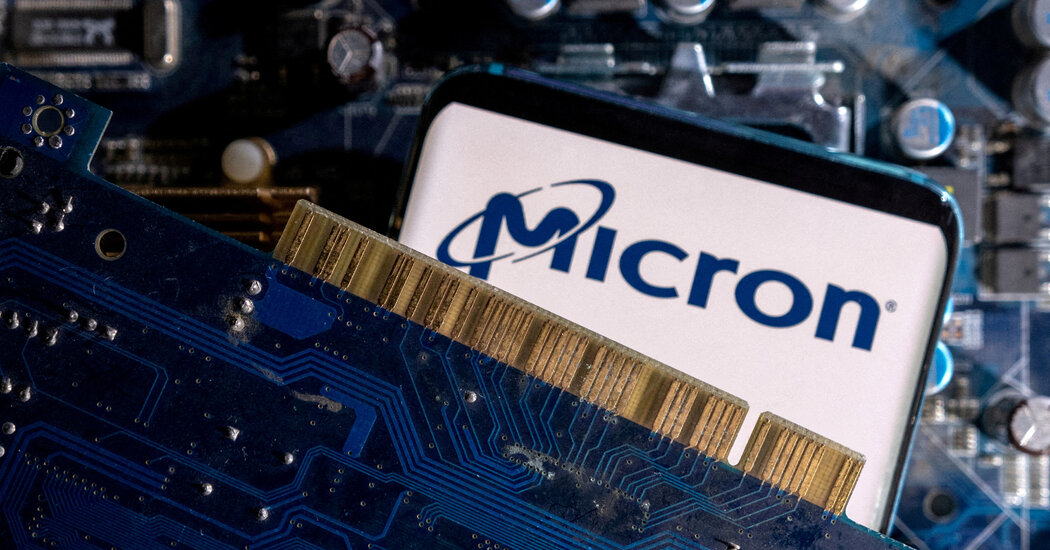After a bill that would force TikTok’s Chinese parent company to sell the app or face a nationwide ban sailed through the House at breakneck speed this week, its progress has slowed in the Senate. Senator Chuck Schumer of New York, the Democratic leader who determines what legislation gets a vote, has not decided whether to bring the bill to the floor, his spokesman said. Senators — some of whom have their own versions of bills targeting TikTok — will need to be convinced. Other legislation on the runway could…
Tag: Computer Security
U.S. House Passes Bill That Could Ban TikTok
The House on Wednesday passed a bill with broad bipartisan support that would force TikTok’s Chinese owner to either sell the hugely popular video app or have it banned in the United States. The move escalates a showdown between Beijing and Washington over the control of a wide range of technologies that could affect national security, free speech and the social media industry. Republican leaders fast-tracked the bill through the House with limited debate, and it passed on a lopsided vote of 352 to 65, reflecting widespread backing for legislation…
China Condemns U.S. Proposal to Force the Sale of TikTok
China on Wednesday condemned U.S. lawmakers’ push to force the Chinese parent company of TikTok to sell the popular short video platform. In Washington, House lawmakers were expected to vote on a bill later in the day that would require the Chinese internet company ByteDance to cut ties with TikTok or face a nationwide ban. Lawmakers say that Beijing could use TikTok to spread Chinese Communist Party messages or gain access to sensitive data about TikTok’s American users. Beijing rejected concerns that the app was a danger to the United…
Biden Issues Executive Order to Restrict Personal Data Sales to China and Russia
President Biden issued an executive order Wednesday seeking to restrict the sale of sensitive American data to China, Russia and four more countries, a first-of-its-kind attempt to keep personally identifying information from being obtained for blackmail, scams or other harm. The president asked the Justice Department to write rules restricting the sale of information about Americans’ locations, health and genetics to China, Russia, Iran, North Korea, Cuba and Venezuela, as well as any entities linked to those countries. The restrictions would also cover financial information, biometric data and other types…
Leaked Files Show the Secret World of China’s Hackers for Hire
A cache of documents from a Chinese security firm working for Chinese government agencies showed an extensive effort to hack many foreign governments and telecommunications firms, particularly in Asia, as well as targets of the country’s domestic surveillance apparatus. The documents, which were posted to a public website last week, revealed an eight-year effort to target databases and tap communications in South Korea, Taiwan, Hong Kong, Malaysia, India and elsewhere in Asia. The files also revealed a campaign to monitor closely the activities of ethnic minorities in China and online…
The Race to Avert Quantum Computing Threat With New Encryption Standards
They call it Q-Day: the day when a quantum computer, one more powerful than any yet built, could shatter the world of privacy and security as we know it. It would happen through a bravura act of mathematics: the separation of some very large numbers, hundreds of digits long, into their prime factors. That might sound like a meaningless division problem, but it would fundamentally undermine the encryption protocols that governments and corporations have relied on for decades. Sensitive information such as military intelligence, weapons designs, industry secrets and banking…
U.S. Issues Final Rules to Keep Chip Funds Out of China
The Biden administration on Friday issued final rules that would prohibit chip companies vying for a new infusion of federal cash from carrying out certain business expansions, partnerships and research in China, in what it described as an effort to protect United States national security. The regulations come as the Biden administration prepares to disburse more than $52 billion in federal grants and tens of billions of dollars of tax credits to build up the U.S. chip industry. The new rules aim to prevent chip makers that benefit from U.S.…
Chips Make It Tough for the U.S. to Quit China
In May, Micron Technologies, the Idaho chipmaker, suffered a serious blow as part of the U.S.-China technology war. The Chinese government barred companies that handle crucial information from buying Micron’s chips, saying the company had failed a cybersecurity review. Micron said the change could destroy roughly an eighth of its global revenue. Yet in June, the chipmaker announced that it would increase its investments in China — adding $600 million to expand a chip packaging facility in the Chinese city of Xian. “This investment project demonstrates Micron’s unwavering commitment to…
U.S. Agencies Breached in Cyberattack by Russian Ransomware Group
A Russian ransomware group gained access to data from federal agencies, including the Energy Department, in an attack that exploited file transfer software to steal and sell back users’ data, U.S. officials said on Thursday. Jen Easterly, the director of the Cybersecurity and Infrastructure Security Agency, described the breach as largely “opportunistic” and neither focused on “specific high-valuable information” nor as damaging as previous cyberattacks on U.S. government agencies. “Although we are very concerned about this campaign, this is not a campaign like SolarWinds that poses a systemic risk,” Ms.…
China Bans Some Chip Sales of Micron, the US Company
Beijing on Sunday told Chinese companies that deal with critical information to stop purchasing products from Micron Technology, the U.S.-based manufacturer of memory chips used in phones, computers and other electronics. Many analysts viewed the move as retaliation for Washington’s efforts to cut off China’s access to high-end chips. In a statement on its official social media site, the Cyberspace Administration of China said that in a cybersecurity review it had found that the chip maker’s products posed “relatively serious cybersecurity problems.” The problems could “seriously endanger the supply chain…









